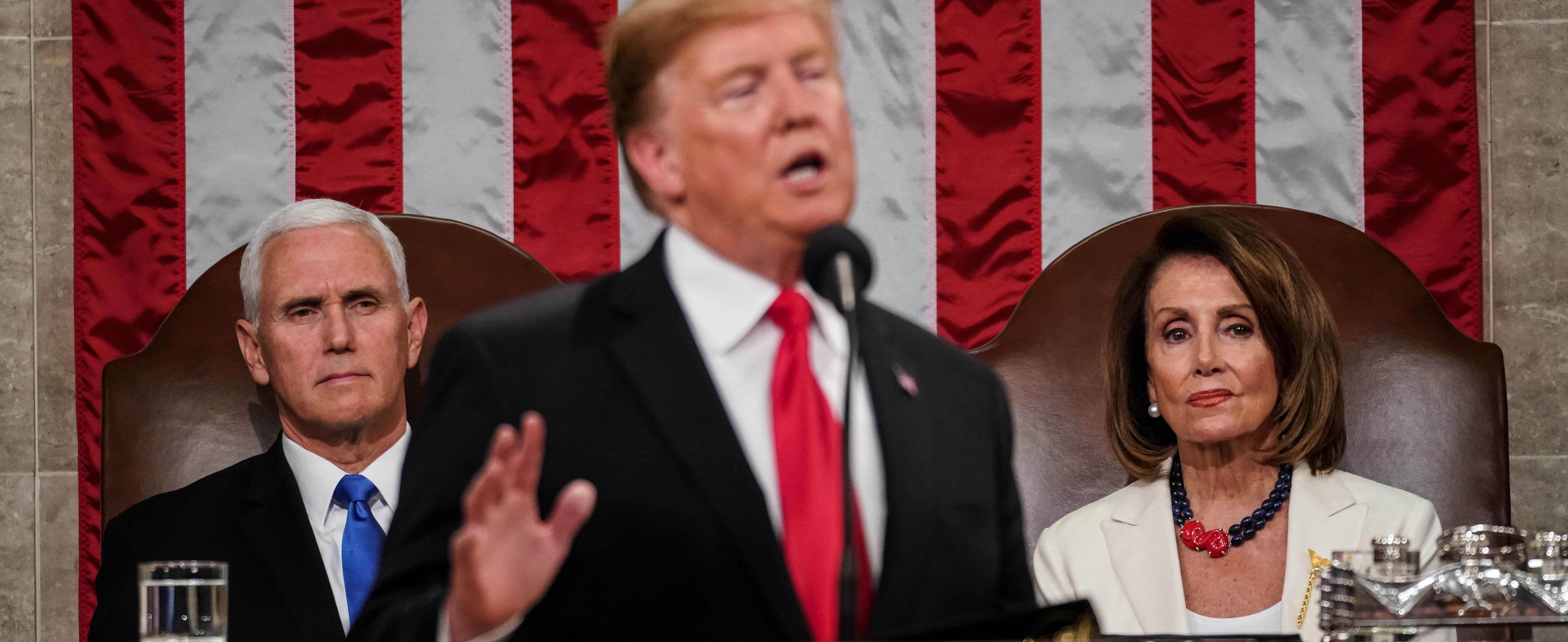Last night, US President Trump delivered his State of the Union message to Congress, the US and the world. It was, as always, a spectacle. The President called for unity and bipartisanship, but those in the House Chamber were deeply divided. With one side jumping up and the other sitting still, it appeared that the Capitol building might become unbalanced and tip over…
There was one area of the President’s speech during which both sides stood: the need to address “out of control drug prices” in the United States. The President and Democrats have enthusiastically embraced this issue – at least rhetorically – and the Republican rank and file are being forced to go along. Up to now, however, Trump’s rhetoric has not matched his actions… but that may be changing.
Democrats control the House of Representatives and are making drug prices their top (or nearly top) priority. The President recognizes that his core constituency has no great love for big pharma – despite the miracles their drugs facilitate – so he’d love to deliver something big on drug prices to his base as 2020 approaches.
What might he and the Democrats do? There seem to be three areas of potential action.
Firstly, “Stop the freeloading” – President Trump again last night stated that he doesn’t think it is fair that the price Americans pay for drugs is so much higher than the prices paid in Europe and elsewhere. He has not yet explained how he might persuade other countries to raise their prices… rather, there are some in the Administration and in Congress who have suggested indexing US drug prices to those being paid by the “rest of the world”.
Pharma company leaders acknowledge that the US is subsidizing innovation for everyone, and they agree that isn’t fair. But they argue that this indexing idea will stifle research and development of new expensive treatments.
Secondly, Price Transparency – In the US, new drugs are launched with a “list” price, a number from which discounts are negotiated. One might think of this number as the sticker price on a mattress… few will pay that high price, but the mattress salesperson must start high in order to provide the discount consumers want.
The President and his Secretary of Health and Human Services – Alex Azar, former Eli Lilly CEO – have proposed requiring drug companies to feature the “list price” of their drugs as part of the branded drug television advertising that is so prevalent to consumers. Azar believes that, by requiring this notice, drug companies will be embarrassed by the size of numbers and, perhaps, lower prices in order to appear less greedy. The drug companies hate this idea, and some argue – with good reason – that featuring the list price rather than, for example, a typical out-of-pocket expenditure for patients after insurance might deter patients who could benefit from the drug from seeking treatment. Drug companies will try to make a deal on this one, but it seems likely some price disclosure is coming.
Thirdly, “Eliminate the Middle Man” – Virtually everyone – including pharma companies – agrees that the US drug pricing system is nuts. Trump and Azar believe that the arcane process by which brand drugs are priced, discounted and distributed helps to contribute to the higher prices both insurers and consumers pay.

It’s a complex system, illustrated above. What Trump and Azar are proposing is that the rebates/discounts paid to Pharmacy Benefit Managers (PBMs) be illegal for Medicare’s prescription drug plans. The thinking behind this idea is that the discounts would no longer benefit insurance plans and PBMs but rather consumers. Further, many believe that the requirement to pay rebates helps drive up the list price pharma companies set. Now, the discounted price would benefit consumers… and no one else. You can read more here.
This may be a good idea and pharma companies love it. But, as it stands now, it would apply only to Medicare, no private insurance plans. PBMs will fight hard to stop it and, in the end, it is not clear how much it will save consumers.
Ultimately, it is not clear what will happen on drug pricing in the US but what is clear, there is enough support to make something happen. That, on its own, will be new.

